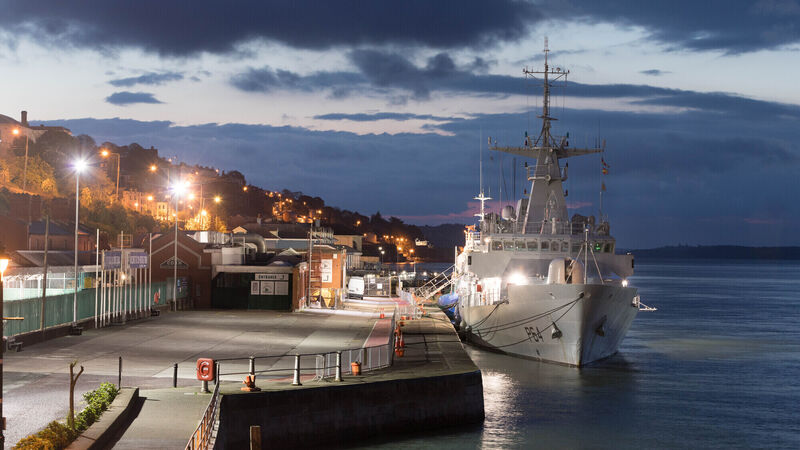Time flows quickly as Naval Service tries to keep personnel numbers afloat

Naval Service vessel LÉ George Bernard Shaw in Cobh, Co Cork. Picture: David Creedon / Anzenberger
A highly-skilled marine engineering technician has warned that the Naval Service may not be able to wait for the Commission on Defence to make its report, let alone that of the Independent Pay Review Body.
Tadhg McCarthy reluctantly walked away from a job he loved as a Naval Service engine room artificer (ERA) after 24 years, because “there was no proper work-life balance".













